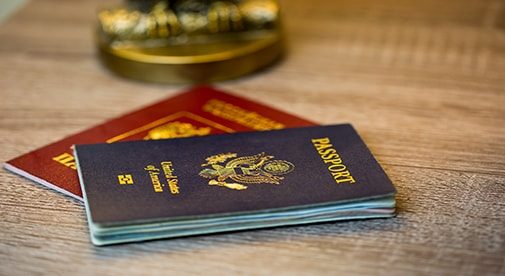The UN High Commission on Refugees estimates that today there are nearly 25.4 million refugees, over half of whom are under the age of 18, and 3.1 million asylum seekers, including an estimated 10 million stateless people who have been denied a nationality.
These many millions of people are seeking a new home in a new country— they desperately want to change or acquire citizenship.
Few of us ever bother to consider what “citizenship” means, but our need to understand its importance is greater in these times of political upheaval caused by massive emigration and immigration.
The concept of citizenship began with the ancient Greeks, who regarded it as forming the basis of civilized life by defining a person’s relationship to their country. While most take it for granted, citizenship is important because it governs the legal relationship between you and the sovereign nation where you live under laws that confer your rights and duties.
More than 2,000 years ago, Aristotle noted the two principal methods of acquiring citizenship, then and now. Citizenship is conferred by birth within a country, or it flows from the nationality of one or both parents. It can also result from a formal process called naturalization.
The 1948 United Nations Universal Declaration of Human Rights states in Article 15: “Everyone has the right to a nationality. No one shall be arbitrarily deprived of his nationality nor denied the right to change his nationality.”
Yet history is replete with instances in which dictators arbitrarily revoked individuals’ citizenships. In the 1920s, the Soviet Union revoked the citizenship of millions of ethnic Germans, Poles, and others that Josef Stalin viewed as political threats; in the 1930s, Hitler’s Germany revoked the citizenship of hundreds of thousands of Jews.
The possibility of loss of citizenship is not confined to the past, nor to countries run by dictators.
- In the United States there now are an estimated 12 million illegal residents, mainly from Central America, driven north in large numbers since the 1980s. Thousands of people from Central America continue to trek across Mexico, seeking asylum and eventual U.S. citizenship. These mass marches have caused a major political disruption between the U.S. and Mexico.
- The pending so-called “Brexit” of the United Kingdom from the European Union calls into question the status of the 1.8 million people of Northern Ireland, unique within the U.K. in that they have the birthright to identify as Irish, British, or both. With Brexit pending, their EU citizens’ rights are in the balance, and the situation is urgent.
- The U.K. government is also embroiled after a threat to revoke the citizenship of over 5,000 migrants from Caribbean countries who came to the U.K. to work beginning in 1948. Lacking proper proof of legal citizenship, they faced deportation and/or a ruling of U.K. noncitizenship.
- In India, 4 million people living in the Indian state of Assam have been left off the National Register of Citizens. Mainly from Bangladesh, these shocked people, who thought that they were Indian citizens, found that they are technically stateless.
- Years of economic and political instability in Venezuela have caused 3.4 million Venezuelans to leave the country seeking food, work, and a better life since 2014. Most have traveled to nearby countries, including 1.4 million who have been granted work permits or temporary status, and about 400,000 people who have requested asylum.
- The U.S. Supreme Court will soon rule in a case to determine if the U.S. Census Bureau can ask a citizenship question on the 2020 census. While that question seems reasonable, almost every country in Europe and elsewhere does so, it has stirred heated U.S. political debate about reapportionment, redistricting, federal funding, and partisan power.
Loss of citizenship is not confined to the past.
You may not be in any of these situations, but it’s a good idea to be aware of them. To recap: citizenship defines the legal relationship between you and the sovereign nation where you live. That relationship can change, and not always for the better. One excellent way to protect yourself from having your citizenship revoked and becoming stateless is to obtain a second passport. I am often asked about dual nationality. How can a person be a citizen of two different nations? How can they legally use two nations’ passports?
There are more ways than you might think to get hold of this ultimate protection from the whims of your government. (And I explain them all in The Passport Book.) For example, many countries, such as Ireland and Poland, grant citizenship to descendants of former citizens, so you may have a claim based on the citizenship of your parents or grandparents.
Once you have achieved dual nationality— that is, you’re a legally recognized citizen of two sovereign nations—it’s twice as hard to be rendered stateless.
Editor’s Note: The Passport Book, Bob Bauman’s definitive guide to obtaining and holding a second passport, is available to order now at IntLiving.com/Passportbook.

